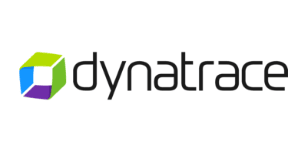Performance Engineering Services
Maximize Application Performance and Save Big! Unleash the Power of Performance Engineering Services - 55% Cheaper than New Relic.


Overcome Application Slowdowns with Performance Engineering!

- Are your applications struggling to meet the demands of your users?
At Star Knowledge, we offer Performance Engineering Services. Our team of experienced application performance monitoring engineers will work closely with you to assess your current application landscape, identify performance bottlenecks, and formulate a comprehensive performance optimization strategy tailored to your unique needs.
How We Help

Many businesses are turning to Star Knowledge’s Performance Engineering Services to unlock the full potential of their digital platforms and achieve remarkable performance success. Here’s what you can expect:
- Improved application performance and speed
- Enhanced user experience and satisfaction
- Increased application availability and reliability
- Optimal resource utilization and efficiency
- Reduced system crashes and downtime
- Cost-effective application ecosystem
- Scalable and future-proof applications
- Scalable and future-proof applications
Years of Experience
0
+
Cheaper than New Relic
0
%
Certified Performance Engineers
0
%
Enterprise Served Customers
0
+
Cost Savings
0
%
Our Performance Engineering Services Offerings

Application Performance Monitoring
Gain full stack visibility across a wide range of technologies, including Java, .NET, PHP, Node.js, Python, Go, and more, to optimize your application’s performance.

Browser Monitoring
Utilize valuable metrics to improve the end users’ experience and enhance your application’s performance, resulting in increased user satisfaction.

Alerts Management
Streamline alerts and incident management through various channels, both directly and via seamless third-party integrations, ensuring prompt resolution of any performance-related issues.

Infrastructure & Logs Monitoring
Obtain a comprehensive overview of your infrastructure’s health and gain detailed insights through easy deployment, enabling proactive performance optimization.

Database Monitoring
Keep track of database query speeds, resource consumption, schema statistics, and more, enabling you to optimize your database’s performance for enhanced efficiency.

Mobile Monitoring
Monitor crashes, performance metrics, and usage statistics for your mobile applications, allowing you to proactively identify and resolve issues to ensure a seamless user experience.
Our Performance Engineering Tools Expertise





Testimonials
Frequently Asked Questions
Performance Engineering is the practice of optimizing the performance and efficiency of software applications, systems, and infrastructure. It involves analyzing, testing, and optimizing various components to ensure optimal performance, scalability, and user experience.
Performance Engineering is crucial for businesses as it directly impacts user satisfaction, conversion rates, and overall success. By ensuring that applications and systems perform optimally, businesses can provide a seamless user experience, reduce bounce rates, improve customer satisfaction, and gain a competitive advantage.
Performance Engineering identifies and addresses performance bottlenecks in applications and systems, ensuring they can handle increased user loads and scale seamlessly as business demands grow. It involves load testing, capacity planning, and optimizing infrastructure and architecture to support scalability.
Performance Engineering employs a variety of tools and technologies to measure, analyze, and optimize performance. Some commonly used tools include load testing tools (e.g., JMeter, LoadRunner), monitoring tools (e.g., New Relic, AppDynamics), APM (Application Performance Monitoring) solutions, and profiling tools (e.g., VisualVM, YourKit).
The duration of Performance Engineering projects can vary depending on the complexity of the application or system being optimized. It typically involves multiple stages, including performance analysis, testing, optimization, and ongoing monitoring. The timeline can range from a few weeks to several months, depending on the specific requirements and goals.
Yes, Performance Engineering Services can be tailored to meet the unique needs of businesses. Each project can be customized based on the specific application, infrastructure, and performance goals. This ensures that the optimization efforts align with the business objectives and deliver maximum value.
Performance Engineering plays a vital role in DevOps by integrating performance testing and optimization throughout the software development lifecycle. It ensures that performance considerations are addressed early on, allowing for continuous monitoring and improvement as part of the DevOps practices.

